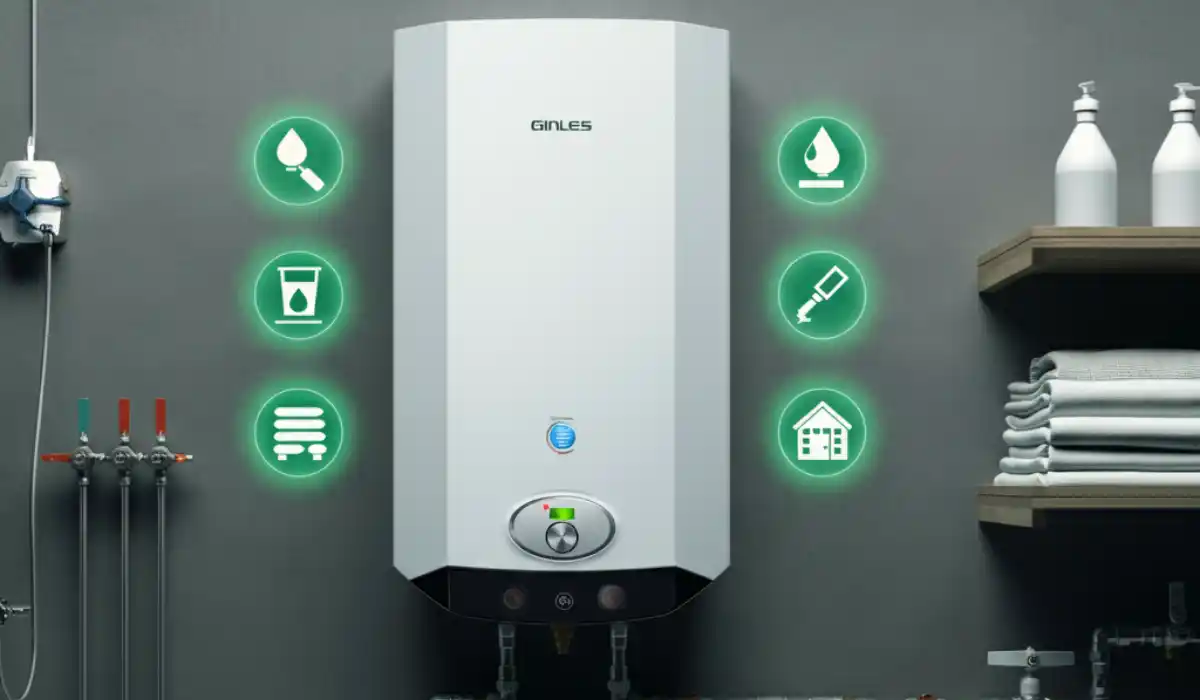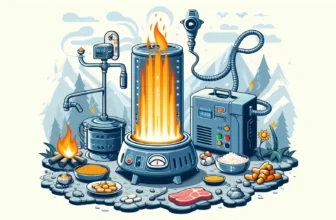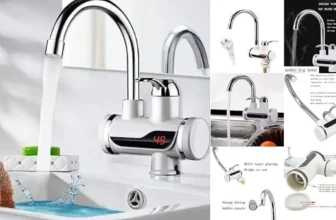The Complete Guide to Tankless Water Heaters for Homeowners

Are you tired of running out of hot water mid-shower? Or perhaps you’re looking for a way to cut down on your energy bills while reducing your home’s environmental footprint. If so, a tankless water heater might be the perfect solution for you.
This guide will walk you through everything you need to know about tankless water heaters—from what they are and how they work to installation tips and cost savings. By the end, you’ll be equipped to decide whether this energy-efficient upgrade is the right fit for your home.
What is a Tankless Water Heater?
A tankless water heater, often referred to as an on-demand water heater, is a modern solution that heats water only when it’s needed. Unlike traditional water heaters that store gallons of water in a tank and reheat it constantly, tankless systems heat water as it flows through the device.
Benefits for Homeowners
Why are more homeowners making the switch? Here are some compelling reasons:
- Energy Savings: Tankless water heaters can reduce energy consumption by up to 34% compared to conventional systems, according to the U.S. Department of Energy.
- Space Efficiency: These compact units take up far less space than bulky storage tanks, making them ideal for smaller homes or apartments.
- On-Demand Hot Water: Forget waiting for the tank to refill—tankless systems provide hot water whenever needed.
- Longer Lifespan: A tankless water heater can last up to 20 years, compared to the average 10-15 years for traditional systems.
How Do Tankless Water Heaters Work?
A tankless water heater uses a high-powered heating element (electric or gas-powered) to heat water instantly as it passes through the unit.
The Process
- When you turn on a hot water tap, cold water flows into the unit.
- The unit’s internal sensors detect the flow and activate the heater.
- The water is heated to your desired temperature as it flows through the heat exchanger.
- Hot water is delivered to your faucet, shower, or appliance.
Efficiency Compared to Traditional Water Heaters
- Energy Usage: Since tankless units only heat water on demand, they avoid the standby energy loss that traditional water heaters experience.
- Performance: Traditional systems may run out of hot water, whereas tankless systems can supply hot water continuously (provided the system is sized appropriately).
Types of Tankless Water Heaters
Choosing the right tankless water heater depends on your home’s specific needs.
Electric Tankless Water Heaters
- Best For: Homes without gas lines or those seeking a lower upfront cost.
- Pros: Compact, easy to install, and energy-efficient.
- Cons: May struggle to supply hot water for larger households or multiple simultaneous uses.
Gas Tankless Water Heaters
- Best For: Larger households with higher hot water demands.
- Pros: Faster heating and higher capacity.
- Cons: Higher installation costs and requires proper ventilation.
Installation and Maintenance
Installing a Tankless Water Heater
- Turn Off Power and Water: Ensure your home’s water and electric/gas lines are off.
- Mount the Unit: Follow the manufacturer’s guidelines for securely mounting the unit.
- Connect Water Lines: Attach the unit to your home’s plumbing.
- Connect Power or Venting (if gas-powered): For electric models, connect to a power source. For gas, set up ventilation properly.
- Test the System: Turn the power and water back on to check for proper functioning.
Note: While this guide provides a basic overview, hiring a professional installer is highly recommended for safety and efficiency.
Maintenance Tips
- Descale Regularly: Hard water can lead to mineral build-up. Descale your system annually to maintain efficiency.
- Clean the Filter: Periodically clean or replace the water filter to avoid clogs.
- Inspect Ventilation (for gas units): Ensure vents are clear and functioning properly.
Cost and Savings Analysis
Initial Costs
The upfront cost for a tankless water heater, including installation, ranges from $2,000 to $4,500, depending on the type and model.
Long-Term Savings
- Reduced energy bills.
- Lower maintenance costs due to fewer parts susceptible to wear.
- Extended lifespan compared to traditional water heaters.
Pro Tip: Check for local rebates or tax incentives on energy-efficient home upgrades to offset initial costs.
Environmental Impact
Switching to a tankless water heater isn’t just good for your wallet—it’s great for the planet.
- Lower Energy Consumption: By heating water only as needed, these systems significantly cut down on energy waste.
- Reduced Carbon Footprint: Gas-powered models emit less carbon dioxide than traditional heaters. Electric models paired with renewable energy sources can be even greener.
Common Myths and Misconceptions
Tankless Water Heaters Can’t Provide Enough Hot Water
If sized correctly for your household, a tankless system can meet your hot water needs, even during peak usage.
They’re Too Expensive and Not Worth the Investment
While the upfront cost is higher, the long-term energy savings and extended lifespan make tankless water heaters a smart investment.
Electric Models Are Always Inferior to Gas Models
Electric units are highly efficient and work perfectly for smaller households with moderate water usage.
Take the Next Step Toward Efficiency
Tankless water heaters are a game-changer for modern homes. From saving on energy bills to reducing your environmental impact, these systems have endless benefits.
If you’re ready to make the upgrade, explore our recommended tankless water heaters and discover the perfect fit for your home. Have questions? Leave them in the comments or reach out to our team of experts today!
Start Your Search for a Tankless Water Heater Now
Read More:-
Why Usha Water Heaters are a Game-Changer for Every Homeowner
Best Kitchen Water Heater: Top Picks for Your Home
Best Water Heater for Bathroom: Complete Buying Guide
Top Rated Instant Water Heater Reviews & Guide 2024
Bajaj Water Heater: Top-rated models, reviews, and buying guide for your home






